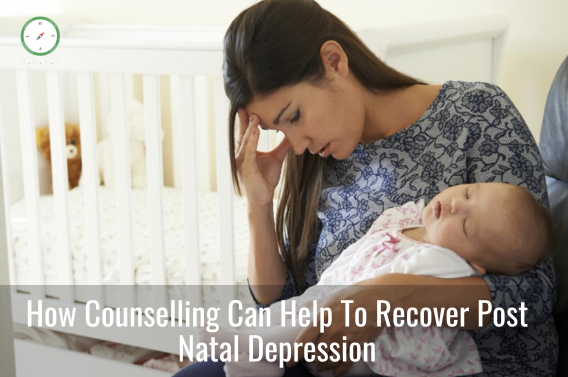What is postpartum depression? Postpartum depression (also called PPD) is a medical condition that many women get after having a baby. Its strong feelings of sadness, anxiety (worry) and tiredness that last for a long time after giving birth which can be cured with proper postnatal depression counselling.

All of that upheaval can initially lead to feelings of sadness, stress, and anxiety rather than the joy and elation you were expecting. Many people experience these “baby blues” as a typical part of postpartum recovery, but they usually go away 1 to 2 weeks after delivery.

Withdrawing from family and friends. Loss of appetite or eating much more than usual. Inability to sleep, called insomnia, or sleeping too much. Overwhelming tiredness or loss of energy.
Counselling the mother, her partner and other family members during the postnatal period focuses on empowering them to recognize the general danger symptoms and seek appropriate care quickly, improve her nutrition to support breastfeeding and recovery, and give her emotional support and help with daily living.
When counselling mothers, it is always important to use the following skills:

Ask and listen: Find out what the mother is already doing for her child and herself by asking thoughtful questions and listening carefully to her answers. Then you will know what she is doing well, and what practices need to be changed.
Praise: Praise the mother for something helpful she has done. It is likely that she is doing something helpful for herself and the newborn; for example, she may be eating a good diet, breastfeeding the baby exclusively, and keeping herself and her baby clean. Be sure that the praise is genuine, and only praise actions that are indeed good for her health and that of her baby.
Advise: Limit your advice to what is relevant to the mother at this particular time. Too much advice, or advice given at the wrong time, can be overwhelming and the mother may ignore it. Use language that the mother will understand. If possible, use pictures, screening cards, or real objects to help explain clearly what you want her to do, know or understand.
Vidhi Beri is a renowned Global Educator and Specialist in the fields of Holistic Health, Lactation, Maternal Health Wellness, Child Nutrition, and Children's Milestone Development with effective and well-structured maternity wellness programs offered to the new wave of freshly home-grown Indian mommies and babies, with her desi tadka of Ancient Indian sciences in her latest book, Decoding Motherhood, one of the best Maternity books India. Visit Vidhi Beri’s official website to know more- https://www.vidhiberi.com/.